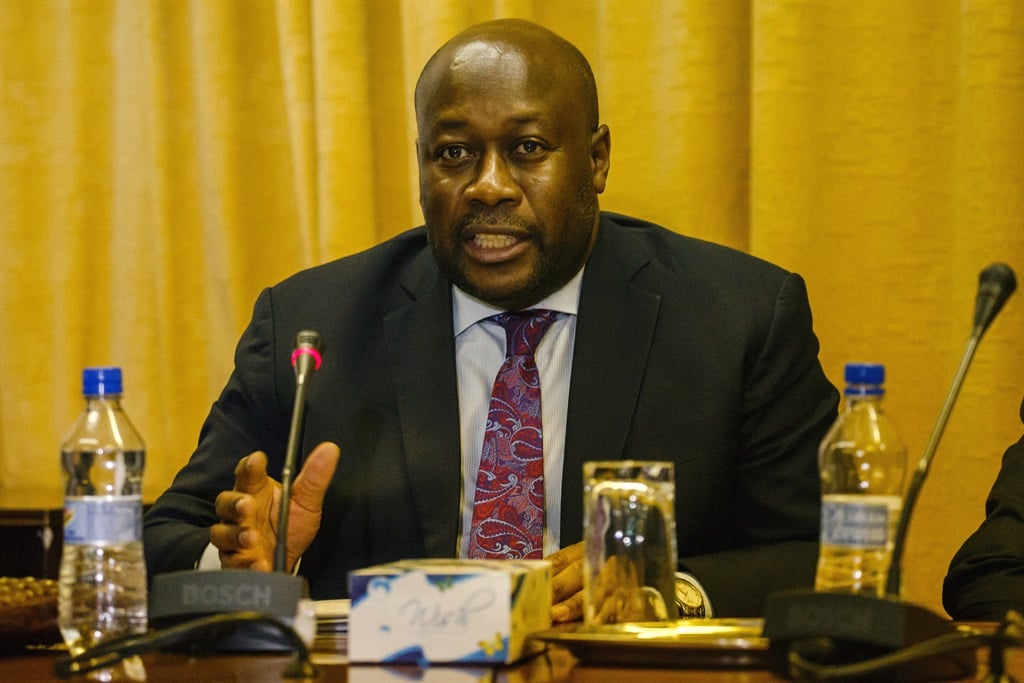
Mr. Winston Chitando, Minister of Local Government and Public Works of Zimbabwe;
- In Zimbabwe, approximately 4,000 people have been arrested for illegally settling on state and council land.
- The government says it is committed to ensuring that all citizens are “settled in an orderly manner on their allocated land.”
- Zimbabwe has said it has options if the British High Court rules it must pay R2.3 billion to a German-owned company.
Two decades after a disastrous land reform attempt that displaced more than 400 white commercial farmers, the Zimbabwean government is fighting illegal settlers on state-owned land ceded by traditional leaders, land barons and corrupt government officials. ing.
Since January 10, a government operation codenamed “No to building barons and illegal settlements on state land” has been implemented in both rural and urban areas.
According to the Zimbabwe Republic Police (ZRP), 3,775 suspects have been arrested so far. Of these, 985 people appeared in court, with some receiving fines worth around R1,000 each.
Most of those arrested are people who bought land from barons, village chiefs, and corrupt officials.
Also read | EU extends arms embargo on Zimbabwe for 13 years due to 'internal repression'
ZRP records showed that some people were illegally resettled on grazing land in some of the farms taken from commercial farmers in the early part of this century.
In one case, Manicaland's civil registrar Joyce Munamati, who is responsible for land audits, was brought to court for selling state-owned land she received in a land reform campaign to local businessman Calvin Ziki for R285,000.
In a separate case, Michael Sajwa, the village headman of Mutasa district in Manicaland city, was taken to court for distributing land on the outskirts of Osborne Farm (a farm taken from commercial farmers to resettle landless locals). .
“It has been determined that trespassing into Maybellin’s greenway space has existed in the past and continues to occur. [a residential area in Harare]on state-owned land and council land,” said Minister of Local Government and Public Works Winston Chitando.
“The government's position is that it is unlawful to distribute state or municipal land for any purpose,” he said.
It is also unlawful for anyone who is not authorized by the Department or the Council to sell, lease, or offer to lease with an option to buy Crown land or Council land.@basera_john @ChronicleZim @ZBCNewsonline
— Ministry of Local Government and Public Works (@MoLGPWZim) February 14, 2024
The government responded by destroying homes and other structures built on illegally acquired land.
Some of the stranded owners then approached the Zimbabwe Human Rights Association (Zim Rights) about getting involved with the state.
Gym Rights called on the government to halt evictions that are “causing massive human rights violations”.
The government said it was “committed to ensuring that all citizens are settled in an orderly manner on their allocated land.”
Read | Zimbabwean opposition leader Job Sihara to be released
One of those affected told News24 that he was unable to secure land during the first land reform in the early 2000s.
“When land reform started, we were led to believe it was political. Some of us were a bit lazy to apply for the land for fear of reversal.”
Instead, he found himself purchasing such land from third parties.
A 2010 study found that 40% of land acquired for redistribution ended up in the hands of then-president Robert Mugabe and his allies.
Last year, a divorce case filed by her daughter Bona Mugabe revealed just how much land she owned.
On January 19, the Zimbabwean government lost a R2.3 billion lawsuit against British Border Timbers.
Part of Border Timbers' ownership is held by German shareholders, and despite a binding bilateral investment promotion and protection agreement signed by Zimbabwe and Germany in 1995, during the land reform period Farms were seized in Zimbabwe.
The company has been fighting for compensation since 2010, but with no success.
If the Zimbabwean government continues to default on payments, it could seize Zimbabwe's assets in the UK to offset the debt.
However, Zimbabwe's Attorney General Virginia Maviza told the state-run Herald that Zimbabwe still had legal options in the matter.
News24 Africa Desk is supported by the Hans Seidel Foundation. Articles produced through Africa Desk, and the opinions and statements contained herein, do not reflect the opinions and statements of the Hans His Seidel Foundation.

